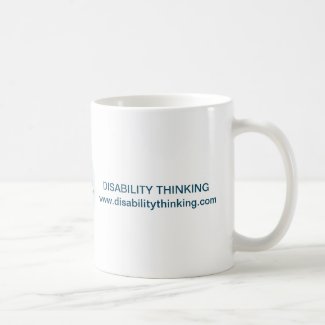Honestly, I didn’t come up with this topic just as an excuse to post and talk about this amazing Drunk History video about an important event in disability history, the Section 504 sit-in. As it happens, I have been thinking a lot lately about an often heard phrase in disability advocacy, “You have to start somewhere!” Then this skit aired on Tuesday it seemed to me like a perfect answer to why the phrase ... though technically true ... has become so irritating.
“You have to start somewhere” shows up a lot in disability activism and culture discussions in which one group of observers complain that a disability-themed movie, TV show, advertisement, inclusion activity, or awareness campaign isn’t good enough, and another group defends it because although it’s not perfect, “You have to start somewhere!” Basically, it’s about different factions within the broader disability community calibrating progress in very different ways. What’s groundbreaking for some is often old hat or even retrograde for others.
This problem relates to more concrete matters, too. Last week, the U.S. House of Representatives passed H.R. 620, a bill that would institute additional waiting and grace periods for businesses to comply with the Americans with Disabilities Act. One of the underlying premises of the bill is the notion that the ADA and accessibility standards are in some sense new, unusual things that business owners can’t be expected to know about by themselves. They need advance notice that they might be out of compliance, and then extra time to figure out what they need to fix it. They shouldn’t be punished for not having their act together on these newfangled regulations.
That’s where the Drunk History skit comes in.
The 504 sit-in was specifically about accessibility, non-discrimination, and creating a more modern, progressive cultural understanding of disability. And it took place in 1977 … 41 years ago. Now, I’m just old enough to have lived as a disabled person in a time when the ADA, disability rights, and cultural representation of disability were actually new things. In the late ‘80s and early ‘90s, we were, in truth, “starting somewhere.” But we can’t still be “starting somewhere” 41 years later, can we? Obviously, progress takes time. It took another 13 years after the 504 sit-in for the ADA to pass. But at some point, doesn’t the clock sort of run out on what’s considered “new” and “just starting?” Doesn’t the simple passage of time suggest that we eventually should expect a better understanding of disability to be widely shared and integrated into the fabric of “stuff people just know?” This then allows us to move ahead to the next steps, and the steps after those.
I think one problem is that a segment of the disability community always views disability matters of all kinds as “new,” because a portion of the disability community is always going to be made up of newly disabled people and families of newly disabled people. It’s all legitimately new to them. That’s understandable. But eventually, it has to stop being new, even for newcomers. And knowing the actual history of these movements and ideas is key, because each new generation of disabled people is not, in fact, the first to experience disability or think up the idea of disability rights. It may seem that way to some of us, but that’s what looking around you, talking to other disabled people, and looking up a bit of history is all about.
It’s amazing that of all things, “Drunk History” has given us such a great opportunity to remind ourselves that the disability rights movement is well past “starting somewhere.”












